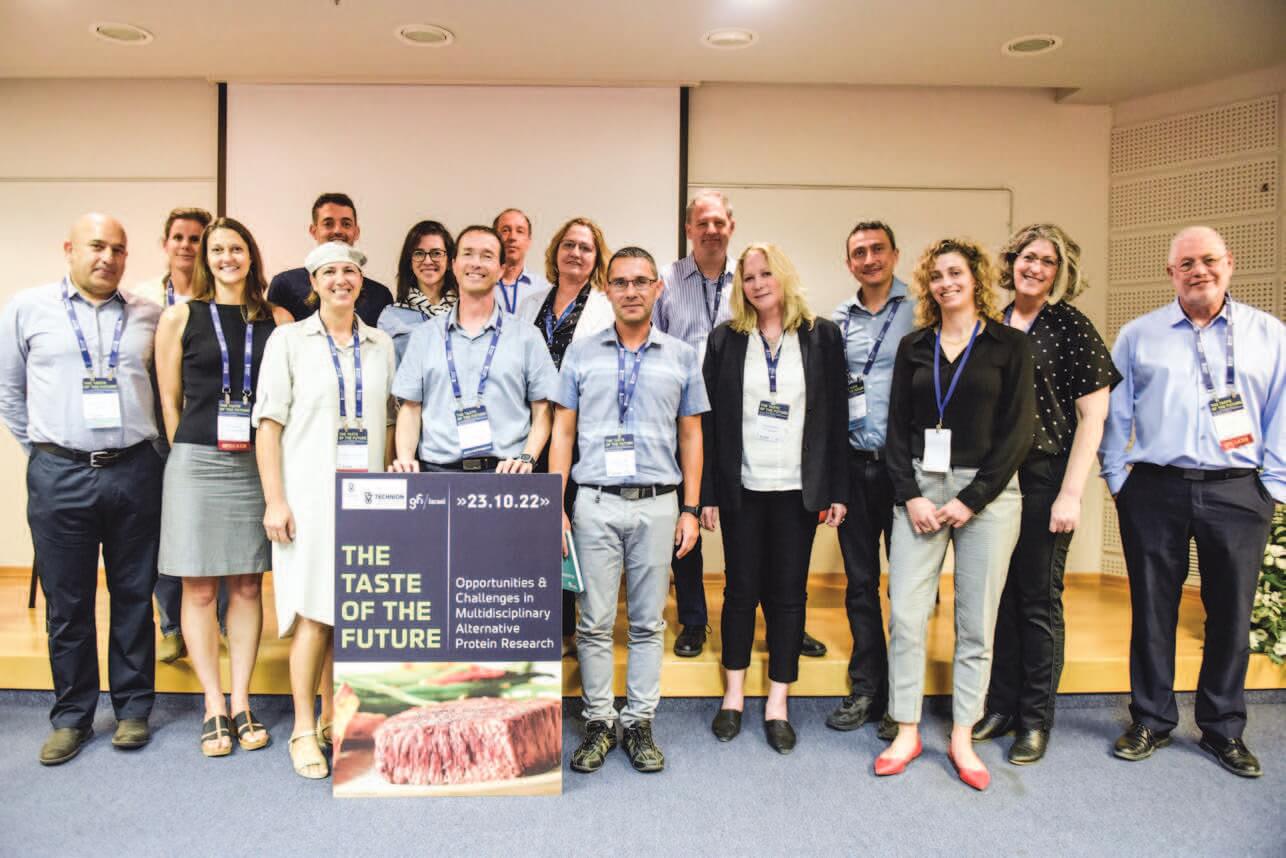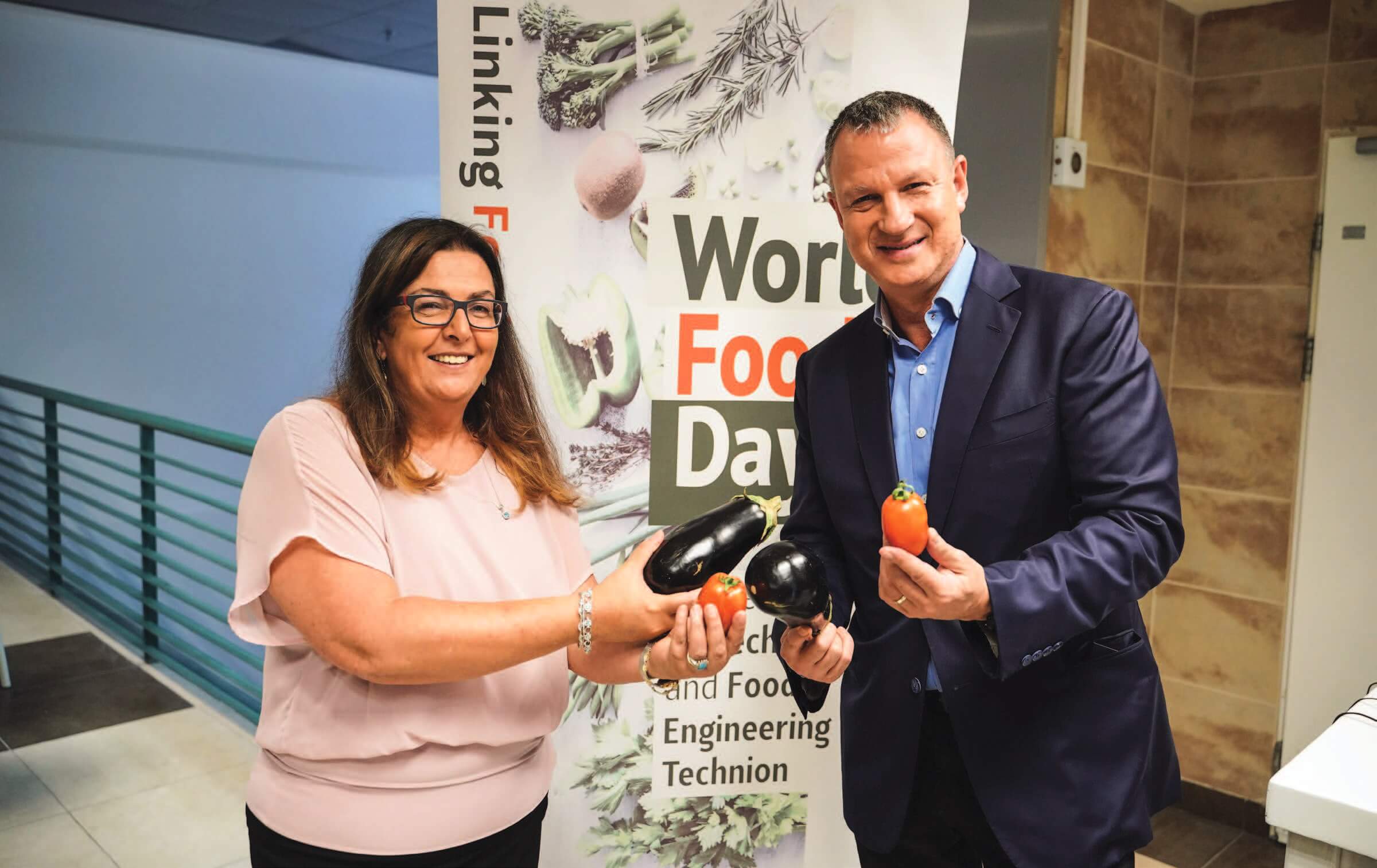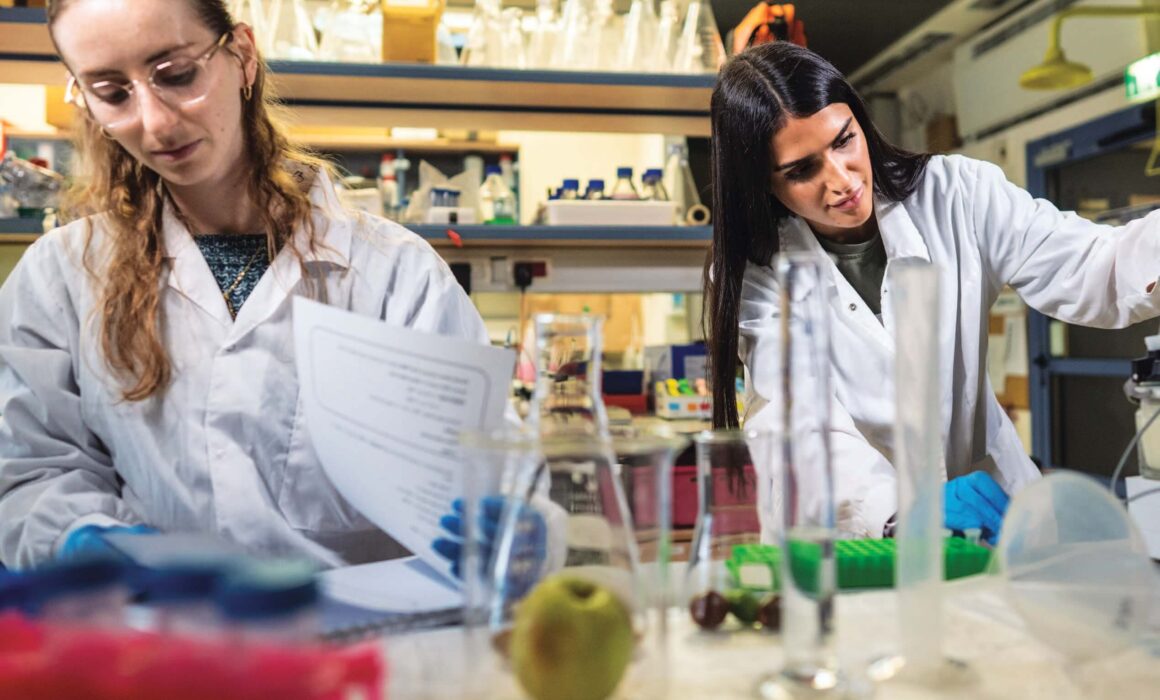Increasing the global food supply while protecting the environment is one of the world’s most pressing challenges. Technion is heavily invested in meeting this challenge, perpetuating Israel’s dominant position in the FoodTech revolution.
“Eradicating world hunger and improving food security are among the main challenges facing humanity in the 21st century, as defined by the UN’s Sustainable Development Goals,” notes Technion President Prof. Uri Sivan. “The Technion has the only faculty in Israel for research in food engineering, a faculty that leads the Israeli FoodTech industry.”
The Faculty of Biotechnology and Food Engineering at the Technion is also one of the few in the world that combines bioengineering, technology, food sciences, and life sciences. Its researchers and educators are among global pioneers that are developing cutting-edge food technologies to help provide the planet with food that is nutritious, environmentally friendly, and economical.

A Range of Activities on Campus
The Technion’s leadership in developing sustainable food products stems from the variety of activities it has on campus, including an accelerator program, symposiums, and the partnerships it has forged with international and local innovation and industry partners. This leadership is set to get an added boost from the construction of the new Carasso FoodTech Innovation Center, which will serve as a multidisciplinary hub for researchers from 11 Technion faculties and other institutions.
The Center, now under construction, will include an R&D facility for industrial production, a packaging laboratory, an industrial kitchen, and spaces for teaching and research, as well as a visitors’ area to expose high school students to the world of FoodTech. The Center has been made possible by the generosity of the Carasso Family and Carasso Motors.
Since 2016, the Technion has partnered with the European Institute of Innovation and Technology (EIT), which is supported by the EU,  to encourage project-based learning in FoodTech among students while helping meet challenges raised by the food industry. Through the one-year EIT Food Solutions project, teams of students from the Technion and other European universities develop innovative food products that address a specific challenge while gaining entrepreneurial skills, from ideation to solution pitch.
to encourage project-based learning in FoodTech among students while helping meet challenges raised by the food industry. Through the one-year EIT Food Solutions project, teams of students from the Technion and other European universities develop innovative food products that address a specific challenge while gaining entrepreneurial skills, from ideation to solution pitch.
Technion students won both the  gold and silver medals in the 2022 EIT Food Solutions competition, with the gold going to a team of graduate students for their OmeleTofu, an instant vegan omelet produced using a freeze-drying process. In previous years, Technion teams have won prizes for innovations such as soy-based yoghurt, low-sugar chocolate cake, and spirulina-enriched falafel.
gold and silver medals in the 2022 EIT Food Solutions competition, with the gold going to a team of graduate students for their OmeleTofu, an instant vegan omelet produced using a freeze-drying process. In previous years, Technion teams have won prizes for innovations such as soy-based yoghurt, low-sugar chocolate cake, and spirulina-enriched falafel.
Under the auspices of EIT, the Technion’s Food Accelerator Network fosters young entrepreneurs from Israel and around the world, giving them the skills needed to nurture their enterprises. Several promising startups have emerged from this accelerator, including Redefine Meat, a maker of 3D printed plant-based meat, which last year raised $135 million to fund global expansion plans.
Last November, the Technion also hosted the Taste of the Future symposium, attended by global FoodTech leaders.
To stay abreast of developments on the ground, the Technion has always prioritized forging ties with partners in the industry. To this end, researchers at the Faculty of Biotechnology and Food Engineering collaborate with both Israeli and multinational food companies, and other key industry players. A collaborative framework recently finalized with Tnuva, one of Israel’s largest food producers, will further facilitate sponsored research at the Technion.
